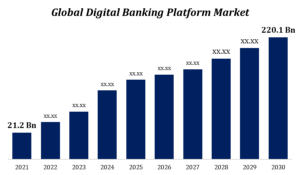Fintech and the Gig Economy: Financial Tools for Freelancers and Independent Workers
The rise of the gig economy, characterized by freelancers, independent contractors, and remote workers, has transformed the traditional employment landscape. As these individuals navigate the challenges and opportunities of non-traditional work arrangements, financial technology (fintech) is stepping in to provide tailored solutions that address their unique financial needs. In this article, we will explore how fintech is revolutionizing the gig economy by offering financial tools and services that empower freelancers and independent workers to manage their finances effectively.
Financial Challenges of the Gig Economy:
- Irregular Income Streams: Freelancers often experience income variability, making budgeting and managing cash flow challenging.
- Tax Complexity: Independent workers are responsible for tracking and managing their taxes, which can be complex and time-consuming.
- Lack of Benefits: Freelancers often lack the benefits and financial safety nets that traditional employees enjoy, such as healthcare and retirement plans.
Fintech Solutions for Freelancers:
- Digital Banking and Payment Platforms: Fintech platforms offer digital banking services tailored to freelancers, providing separate accounts for business and personal expenses.
- Expense Tracking and Invoicing: Fintech apps simplify expense tracking, invoicing, and receipt management, ensuring accurate financial records.
- Cash Flow Management: Fintech tools help freelancers predict and manage cash flow by analyzing income patterns and suggesting optimal times for big expenses.
- Tax Support: Fintech platforms assist freelancers in tracking deductible expenses and setting aside funds for taxes, simplifying tax filing.
- Retirement Planning: Fintech solutions offer retirement savings options like self-employed 401(k)s or IRAs, helping freelancers plan for the future.
Benefits of Fintech for the Gig Economy:
- Financial Empowerment: Fintech empowers freelancers to take control of their finances, make informed decisions, and plan for financial stability.
- Flexibility and Accessibility: Freelancers can access financial services and tools anytime, anywhere, aligning with their flexible work schedules.
- Efficiency and Automation: Fintech automates financial tasks, allowing freelancers to focus more on their work and less on administrative duties.
- Financial Inclusion: Fintech bridges the gap by providing financial services to those who might not have had access to traditional banking.
Challenges and Considerations:
- Data Security: Fintech platforms must ensure robust security measures to protect sensitive financial information of freelancers.
- Education and Adoption: Freelancers need to be educated about fintech tools and encouraged to adopt them to reap the benefits fully.
- Regulatory Compliance: Fintech platforms must navigate regulatory challenges to offer appropriate financial services for freelancers.
Future Directions:
- Holistic Financial Platforms: Fintech platforms could evolve into comprehensive hubs offering banking, investment, insurance, and retirement solutions for freelancers.
- Collaboration with Gig Platforms: Collaborations between fintech and gig platforms can provide seamless integration of financial tools into freelance work platforms.
- Personalized Financial Guidance: Advanced fintech solutions could use AI to offer tailored financial advice based on the freelancer’s income, expenses, and goals.
Fintech is reshaping the gig economy by providing freelancers and independent workers with the financial tools they need to thrive in their non-traditional work environments. From managing cash flow to simplifying tax processes and retirement planning, fintech is empowering freelancers to achieve financial stability and make the most of their earnings. As fintech solutions continue to evolve, they will play an increasingly essential role in supporting the financial well-being of the growing gig economy workforce.
Top of Form


































